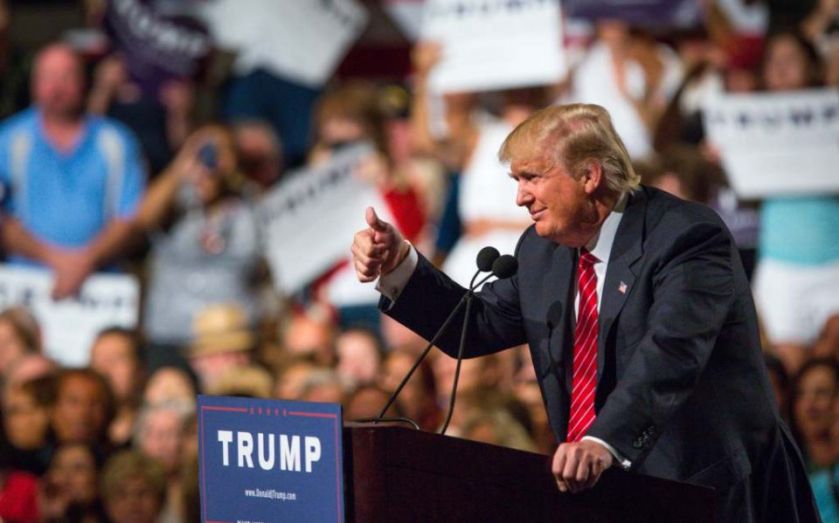Donald Trump’s fairy tale economics is bad for his party and terrible for America

The Republican Party must be tearing its hair out. For years, visitors from the US have extolled the strength of the party’s potential Presidential candidates for 2016. The pack is certainly more impressive than in 2012 and, with the exception of one or two candidates, they are ostensibly advocates of relatively free market policies. In a campaign against an unlikeable Hillary Clinton, many conservatives were quietly confident of victory in 2016.
But all these voices are being drowned out by the brash businessman and property magnate Donald Trump. Despite widespread criticism for his remarks about “rapist” illegal Mexican immigrants, Trump yesterday topped a poll of GOP candidates, garnering the support of 18 per cent of Republicans. At best, he looks set to draw significant amounts of precious airtime in the coming months. At worst, given that he’s unlikely to win the Republican nomination, he may decide to run as an independent, handing Clinton the keys to the White House.
At least in part, Trump’s success so far is likely to reflect his stance on border control. As in the UK, many Americans are worried about (illegal) immigration – and feel that mainstream candidates do not reflect their concerns. But the overwhelming reason for Trump’s success looks to simply be many voters thinking a strong businessman is preferable to someone from a political class that is perceived to be weak.
Yet businessmen often make lousy politicians. The US should not need reminding of this – after all, Herbert Hoover was a businessman with no history of elected office before becoming President, and is now regarded as a failure by all sides. The importance of managerial skills and deal-making in delivering clear goals within large, centrally planned firms is not easily translatable to the political arena – which requires persuasiveness and nuance, rather than bombastic fist-slamming.
But the most worrying aspect of Trump’s candidacy is his contribution to the economic debate. Trump is a nativist and a protectionist. He laments that America imports cars and exports corn – taking the mercantilist position that imports are bad and exports good, alongside a Ross Perot-like fetish for manufactured “stuff”. This shows complete ignorance of comparative advantage – and trade being about the exchange of things people want and need.
Trump therefore promises “fair” tariffs on imported goods, and a crackdown on China’s currency manipulation through taxes which reflect currency “undervaluation”. This would likely start a trade war at a time when a growing Chinese middle class offers untold opportunities for rich Western countries to export services. But Trump doesn’t stop there. He also wants to tax firms that “export jobs” and factories overseas. In particular, he laments the fact that many call centres are based in India.
This shows a remarkable misunderstanding of the way the world works. Call centres are based elsewhere because, at the moment, it is cost-effective to do so. But these specific jobs being overseas need not lower US output or welfare. In fact, it helps lower prices for US consumers, and workers are freed up to work in higher-value occupations.
Even on fiscal issues, Trump has bizarre views. He’s promised the seemingly inconceivable agenda of hugely lower tax revenues and reduced spending, but balancing the books while leaving the big entitlement programmes – which are the real, long-term drivers of US debt – largely untouched. In the past, he’s advocated a potentially catastrophic one-time high wealth tax to “pay off the national debt” – a $5.7 trillion liquidation of assets that would have seen substantial capital flight and severely affected the US economy. While he’s not advocating a repeat today, he still promises populist “no pain” solutions to America’s long-term fiscal challenges that seemingly ignore reality.
Quite simply, Trump’s nativist economics agenda and fiscal fairy tales are not what the Republicans or the US need. They’d better hope he fades sooner rather than later.